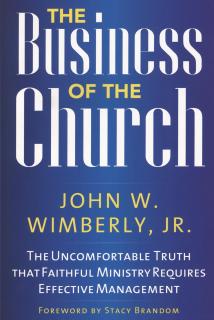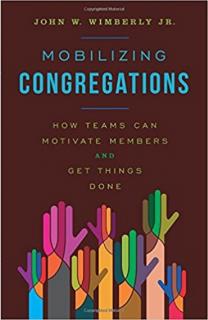Train Your Leadership Development Team

Learn the kinds of leadership best practices that you want to instill in the rest of the congregation. Learn about the difference between Leadership and Management (we need both), how Leadership Development is an important part of Faith Formation, and how thinking in terms of teams and not just individuals can make all the difference!
Management vs. Leadership (We Need Both!)
This short video from @ScottWilliams provides 10 clear distinctions showing the difference between a manager and a leader.

Congregational Management: A Holy Calling
Adapted from The Business of the Church: The Uncomfortable Truth that Faithful Ministry Requires Effective Management by John W. Wimberly, Jr., copyright © 2010 by the Alban Institute.
Like all systems, congregations are filled with anxiety. Unlike most systems, they also are filled with an ideal vision the world cannot provide. To fully maximize the vision ..., managers need to pay close attention to the systemic inputs of people, facilities, and money that support the ministry. To that end, there are six key practices for effective congregational management:
Thinking Systemically. Reactive managing is more time-consuming than proactive attention to the system as a whole. When a major personnel, facilities, or financial subsystem malfunctions, it can bring the entire congregation to a grinding halt. It is far easier to keep a system maintained and running properly than to restore one that has failed. But such care requires that managers recognize and understand the systems of which they are stewards.
Understanding the Difference between Management and Leadership. Effective organizations are run by people who know when they are leading and when they are managing. The two require very different but complementary ways of thinking. Leadership thinks long-term, management short-term; leadership focuses on strategic issues, management on implementation; leadership inspires people, management brings people together into a cohesive, efficient group.
Lubricating the System. Managers "grease the gears" of a system to keep it running smoothly. Before friction (such as facilities issues, personnel problems, or financial surprises) reaches the point where it can limit ministry, managers apply the needed lubrication (usually involving more people, space, or money) to keep the parts running smoothly. If the system lacks effective management, the parts will begin to work against themselves in ways that damage the productivity of the whole. ...
Maximizing the Possibilities of the Parts. When working with personnel, effective managers seek to bring out the best in those they manage while limiting the impact of a person's weaknesses on the system. Managers make the most of the limited facilities and maximize dollars by ensuring that finances are handled with care.
Limiting Risks. Congregational leaders are supposed to take appropriate risks to expand the ministry. Congregational managers are supposed to identify and reduce risks. They ask the questions the dreamers sometimes ignore: "How are we going to pay for this?"
Aligning the Parts. Productive managers have a clear understanding of the vision and goals a congregation is attempting to implement. When the inputs of facilities, finance, and people are aligned with a well thought out strategic plan grounded in the vision.
The best managers learn as they manage. Sometimes, we learn more from our mistakes than our successes. However, learning what works and doesn't work with our given inputs and our own individual strengths and weaknesses as managers is key to growing into the practice of management.

Committees are for Discernment, Teams are for Action
Adapted from Mobilizing Congregations: How Teams Can Motivate Members and Get Things Done by John Wimberly.
After understanding the difference between leadership and management, it's easier to see the different kind of leadership needed on board committees and ministry teams.
Board Committees
- Does part of the work of the governing board
- Meets regularly with an agenda, keeps minutes
- Gathers information, discerns, makes recommendations back to the board
Ministry Teams
- Leaders communicate a sense of purpose to give direction
- Autonomous, work within a sense of covenant with the congregation and its mission
- Team have a high level of trust, belonging and mutual accountability
- Expectations are based on action and impact of the work/ministry